
Women’s Health And Nutrition Guide For Every Age
As teenagers, we could get by on a diet of pizza, chips, and fast food without much thought. But as we move through college and beyond, nutrition becomes increasingly important. For both men and women, nutritional needs can change through the years.
You may have noticed a range of vitamins and dietary supplements catered specifically for women or for specific life stages. These, along with our diets, can help us achieve the right amounts of nutrients to maintain our bodies and keep us feeling at our best.

In this guide, you’ll learn a few key actions and nutrients to ensure optimum health through your 20s, 30s, 40s, and beyond.
Developing Good Habits in Your 20s
Drink Enough Fluids
When you’re rushing between school, work, and social activities, it’s easy to forget to hydrate. Carrying a water bottle with you can encourage you to drink and help you meet your fluid needs, which are about two liters per day.
And keep in mind that other fluids count, too. Despite what you may have heard, even caffeinated coffee and tea count as part of your fluid intake. It’s best to keep your coffee and tea drinks plain, though, to avoid excess calories that often lurk in specialty coffeehouses or many bottled beverages. And remember to track your caffeine intake, too. About 400 mg caffeine a day is the most we recommend for healthy adults without caffeine sensitivity, with no more than 200 mg of that at any one time.
Pack Smart Snacks
According to the Centers for Disease Control and Prevention (CDC), adults aged 20 to 39 consume 15.3 percent of their calories from fast food. Instead of racking up empty calories, choose better snack alternatives to control your refined sugar intake. Include some protein, which will give your snack some staying power. Try some yogurt or cottage cheese with fruit, or some hummus dip with vegetables or, if you’re on the go, toss a protein bar into your bag.
Nutrient Essentials: Calcium and Potassium
Calcium is a nutrient many women don’t get enough of – at all ages. But you’re still building bone through your mid-20s, and your maximum bone density is reached at about age 30, so this is a good time to focus on this essential nutrient.
Keep your bones strong by getting at least 1,000 mg of calcium each day. Milk is one of the richest calcium sources, but it takes more than three 8-ounce glasses to meet calcium needs. However, there are other foods that supply calcium as well.
Other sources of calcium include:
- Yogurt
- Fortified non-dairy milk
- Firm tofu
- Sardines
- Leafy green vegetables
- Sesame seeds and almonds
Similarly, potassium is essential for the proper function of your heart and skeletal muscles, and it also supports healthy blood pressure. Potassium is abundant in fruits, vegetables, and dairy products, but many women don’t consume enough of these foods every day.
Try to add more of these high-potassium foods to your meals or snacks:
- Melons
- Tomatoes
- Avocados
- Bananas
- Beans
- Leafy greens
Advice for Pregnant Women, New Moms, and Nursing Mothers
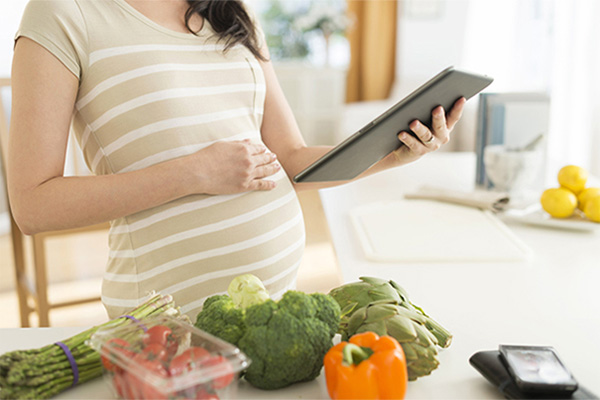
Pregnant women have specific nutritional needs in this life stage. When you’re pregnant, your daily calorie needs increase by about 300, but you need to pack a lot of nutrition into those 300 calories. Women often use the excuse of “eating for two” to indulge in high-calorie foods, but those 300 extra calories should be spent on lean proteins, an extra dairy serving, and more fruits and vegetables.
If you’re nursing your baby, you need an additional 200 calories (on top of the extra 300 you needed while you were pregnant) in order to meet the nutritional demands of your growing baby.
Most women will be advised to take a specific prenatal vitamin supplement which is formulated to meet the unique nutrient needs of pregnant women. Folic acid is a B-vitamin that is particularly important in the prenatal period because of its role in the development of the baby’s nervous system, and it is a key ingredient in prenatal supplements.
Folic acid is also abundant in leafy green vegetables, asparagus, Brussels sprouts, and beans.
Women who are considering a pregnancy are advised to take in plenty of folic acid even prior to becoming pregnant, to help ensure the baby’s health. More women are waiting until their 30s to have their first baby, according to a CDC report. If you’re one of them, keep up the folic acid intake.
New moms will often continue to take their prenatal vitamins to help their bodies recover, and these supplements will provide another important nutrient: vitamin B6. Pregnancy can leave the body somewhat depleted of vitamin B6, and recommended intakes are higher for nursing moms. Good sources of vitamin B6 include poultry, nuts, oats, bananas, and whole grains.
Eating Healthy in Your 30s
Watch Calories
In your 30s, metabolism starts to slow as you naturally begin to lose muscle mass, so you may find that maintaining your weight starts to become a challenge. Swap refined carbs (white bread, pastries) for whole grains, fresh fruits, and vegetables, and replace sugary beverages with water or plain tea.
Nutrient Essentials: Protein and Iron
Muscle mass declines by about 5 percent each decade starting in your 30s. Weight training is important at any age, of course, but if resistance exercise is not part of your usual routine, this is a good time to reconsider.
Maintaining adequate muscle mass is essential to retaining strength and mobility as you age. To help preserve muscle mass, add resistance training into your workouts a couple of times a week and eat adequate amounts of protein, which helps mitigate muscle loss.
Iron is another nutrient that many women do not get enough of. Iron makes up part of the hemoglobin molecule, a protein that circulates in the blood and serves to transport oxygen to cells. Premenopausal women lose iron every month through their cycles, and many don’t get enough iron in the diet to meet daily needs.
Good sources of iron include:
- Lean meats
- Beans and lentils
- Fortified cereals
Maintaining Good Health in Your 40s
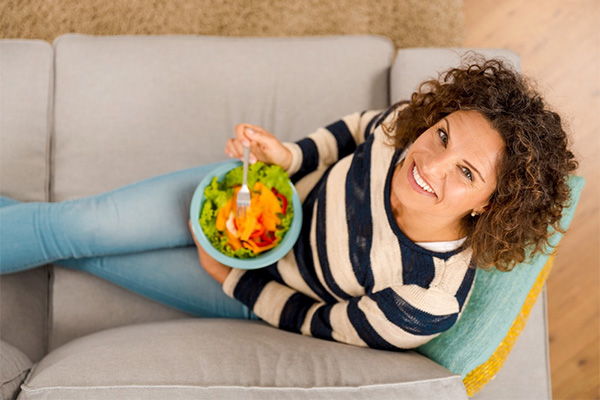
Protect Your Heart
Cholesterol and blood pressure tend to rise as you get closer to menopause. Protect your ticker with regular exercise and heart-healthy foods. Good choices include dark leafy greens, tomatoes and other fruits and vegetables.
If you drink alcohol, do so in moderation (one drink per day for women) and cut down on saturated fats, which are found in red meats, full-fat dairy products, and many processed and fried foods.
Nutrient Essentials: Vitamin D and Antioxidants
Keep an eye on vitamin D, which helps your body absorb calcium. It also keeps your immune system strong and protects against breast and colon cancer. Vitamin D stores tend to decline as women hit their 40s. Vitamin D is found in fortified dairy products, fatty fish, egg yolks, and some fortified foods.
Antioxidants like vitamins A, C, and E prevent or delay cell damage that contributes to aging. Vitamin C can be found in red peppers, citrus fruits and berries; good sources of vitamin A include carrots, peaches, and sweet potatoes; and nuts are a good source of vitamin E.
Nutrients You Need in Your 50s
Eat More Fiber
In women, heart disease risk increases after age 55, according to the National Heart, Lung and Blood Institute. Soluble fiber – found in beans, oats, apples, and barley – helps lower cholesterol levels, which is good for heart health. Fiber also keeps you fuller longer, which can help keep weight in check.
Nutrient Essentials: Omega 3s and B12
Vitamin B12 is found almost exclusively in foods of animal origin and supports red blood cell formation and the health of the nervous system. In the stomach, acids, enzymes, and specialized proteins facilitate absorption. But one consequence of aging can be reduced stomach acid secretion, which can impact vitamin B12 status.
According to the National Institutes of Health, older adults are at risk of vitamin B12 deficiency, and up to 9 percent of adults have a reduced ability to absorb vitamin B12 from food. Supplementation may be advisable, since vitamin B12 obtained from supplements is better absorbed than that obtained from foods.
Similarly, increase your intake of omega-3 fatty acids from fatty fish such as salmon, which is rich in omega-3s EPA and DHA that support heart health.
Staying Strong in Your 60s and Beyond
Keep Moving
An empty nest and fewer work demands leave you with more time to enjoy life. Learn a new language, take a dance class, go on more dates with your partner. Whatever you do, keep up a regular exercise routine and consult with your doctor before considering any vigorous cardio and strength training.
Are You Eating Enough?
Medications, slowed metabolism, a change in taste perception, and other factors can contribute to loss of appetite in our 60s and beyond. While focusing on good nutrition, experiment with a wider range of foods. Sharing meals with friends can make meals more enjoyable. You can also incorporate meal replacement drinks to boost nutrition.
Nutrient Essentials: All of the Above, Plus Probiotics
Our gut health changes as we age. The amount of good bacteria in the gut may decline, and the small intestine may not absorb nutrients as well. Add fiber and probiotics to stimulate the growth of friendly bacteria. Natural food sources of probiotics include yogurt and fermented foods like pickles, sauerkraut and kimchi, or you might consider a packaged probiotic.
*Anyone with a health condition or using medication should talk with their health care provider about their nutritional needs and restrictions.
Susan Bowerman, M.S., RD, CSSD, CSOWM, FAND
Senior Director, Worldwide Nutrition Education and Training, Herbalife Nutrition
About Herbalife Nutrition
Herbalife Nutrition is a global company that has been changing people’s lives with great nutrition products and a proven business opportunity for its independent distributors since 1980. The Company offers high-quality, science-backed products, sold in over 90 countries by entrepreneurial distributors who provide one-on-one coaching and a supportive community that inspires their customers to embrace a healthier, more active lifestyle. Through the Company’s global campaign to eradicate hunger, Herbalife Nutrition is also committed to bringing nutrition and education to communities around the world. For more information, please visit IAmHerbalifeNutrition.com.
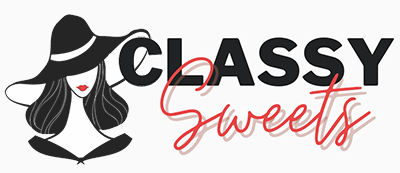
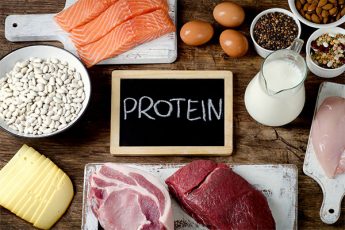

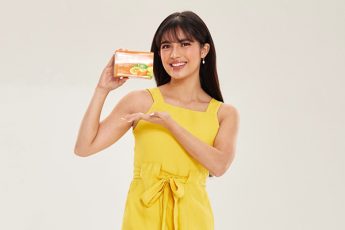
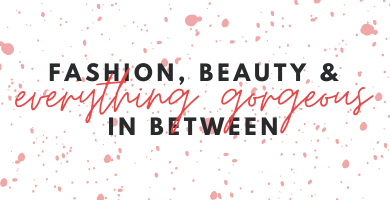


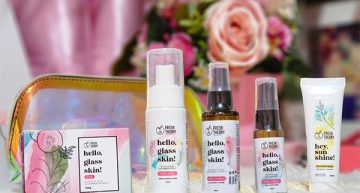
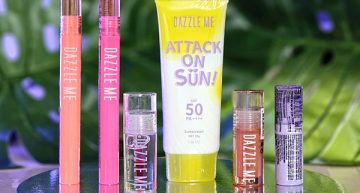
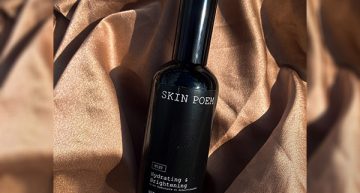

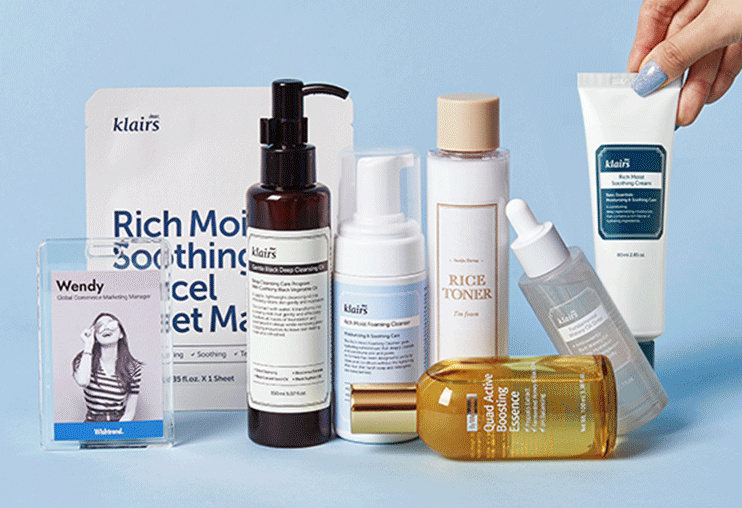
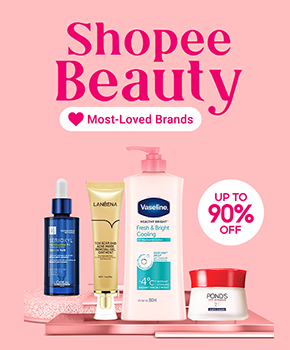
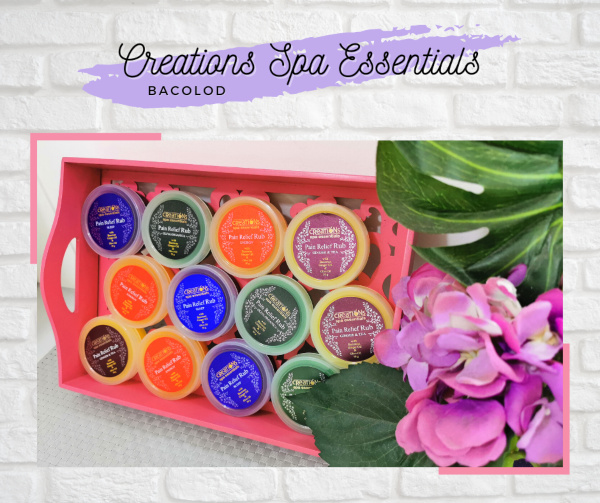
Leave a Comment